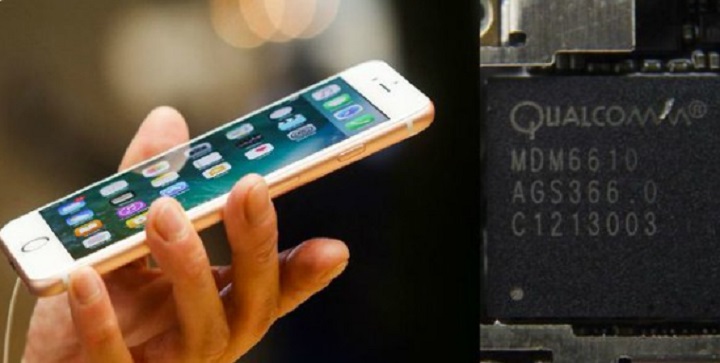It seems that Qualcomm’s (NASDAQ:$QCOM) legal risks are continuing to build. While the Federal Trade Commission’s legal complaint against the San Diego-based company is progressing forward, Apple’s (NASDAQ:$AAPL) separate but similar legal battle is escalating even further. That said, Steve Mollenkopf, the CEO of Qualcomm, is fairly certain that the mobile chip giant will eventually be able to settle with Apple.
At a technology conference in Aspen this week, Mollenkopf made it known to the audience that Qualcomm is no stranger to legal battles, and that “those things tend to get resolved out of court and there’s no reason why I wouldn’t expect that to be the case here,” according to Fortune. That said, Mollenkopf did warn the crowd that no agreements have been made and Qualcomm has nothing to disclose officially at this time.
What Does Apple Think?
Better yet – what does Tim Cook think about the whole ordeal? Cook, the CEO of Apple, has hinted on the past few conference calls in regards to the prospect of settling with Qualcomm. In January, an analyst dug up comments that Cook made in an April 2012 call:
“I’ve always hated litigation, and I continue to hate it. We just want people to invent their own stuff. And so if we could get to some kind of arrangement where we could be assured that’s the case and a fair settlement on the stuff that’s occurred, I would highly prefer to settle versus battle.”
At that time, the litigation in question was Apple’s case against Samsung (KRX:$005930), which Cook inherited from Steve Jobs. When asked in January whether Cook still feels this way in regards to litigation and Apple’s current case against Qualcomm, the CEO replied:
“I feel the same way I did in April of 2012. I don’t like litigation and view it as a last resort. And so you should take from our filing that we viewed it as we didn’t see another way forward.” He added, “I don’t like litigation and so if there’s another way, then that would be great. But at this point, I don’t see it. I fully expect at this point in time that it will take some time, but in the end, I think common sense will prevail and the courts will see it for what it is. And so that’s the way I see it.”
To simplify, Cook is open to the idea of settling, but he doesn’t see that happening anytime soon. On the May earnings call, Cook discussed the case and against expressed doubts on the prospects of settlement. However, he did suggest that he’s still open to settlement.
“In terms of why we’re withholding royalties, you can’t pay something when there’s a dispute about the amount. You don’t know how much to pay. And so they think we owe some amount. We think we owe a different amount. And there hasn’t been a meeting of the minds there, and so at this point, we need the courts to decide that unless we are able to, over time, settle between us on some amount. But right now we’re depending upon the courts to do that, and so that is the thinking.”
If Apple Wins, Qualcomm’s Licensing Model Could Be Threatened
It’s important to note that both companies have expressed an interest in settling. While Cook hates litigation as it’s a massive distraction, Qualcomm would prefer to settle behind closed doors as well because a very public court battle could call its licensing model into question. If the courts find it to be inappropriate to charge a percentage-based royalty, other licensing customers will be able to seek similar arrangements in an attempt to move away from percentage-based royalties.
As of right now, Apple and Qualcomm are pretty ahead of the game, so the chances of a “meeting of the minds” is pretty slim.
Featured Image: twitter











